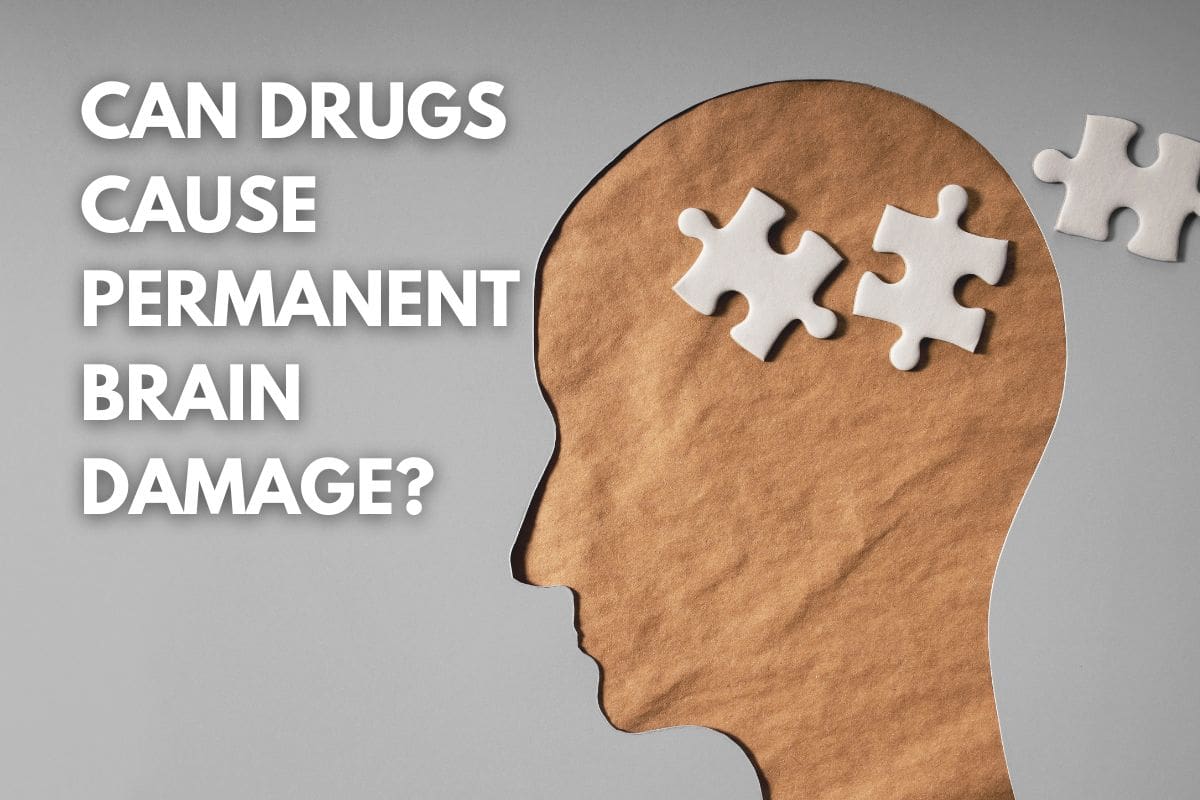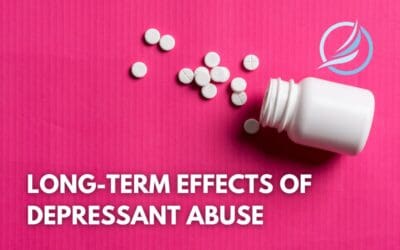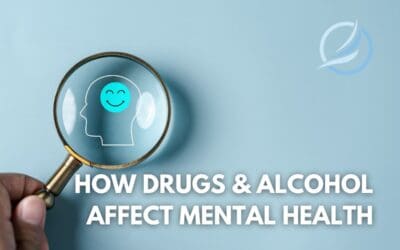Drugs and alcohol can have short- and long-term effects on the brain. People with substance use disorders often experience brain injuries resulting from damaged brain cells. These types of injuries can happen due to the toxic effects of drugs and alcohol or as a consequence of drug use injuries such as seizures, respiratory arrest, and asphyxiation. Learning more about substance abuse and brain injuries can help you understand whether these conditions are permanent or reversible. It may also encourage you or a loved one to start your path to recovery from substance abuse.
What Is Substance-Related Brain Damage?
Brain damage from drug or alcohol abuse can range from minor to severe physical damage. Some of these injuries, such as traumatic brain injury, strokes, and Wernicke-Korsakoff syndrome, can be more persistent. Other common brain injuries include brain atrophy (brain shrinkage) and permanent changes to white matter.
Certain addictive substances have neurotoxic effects that may cause damage or injury to your brain cells. When people abuse these substances for long periods of time, they can increase their risk of substance-related brain changes that can result in neurological issues.
Drugs That Cause Brain Damage
As you can imagine, drugs have a significant impact on your brain. They change how it works and can even cause permanent brain damage. Many drugs can cause permanent or severe brain damage, including but not limited to:
- Alcohol
- Heroin
- Amphetamines
- Marijuana
- Hallucinogens
- Opioids
- Inhalants
- Cocaine
These drugs damage brain cells through various mechanisms. Stimulants and alcohol disrupt the blood-brain barrier, which can change the function of the brain cells and affect how easily toxins can reach the brain. Other substances, like inhalants, can damage the protective layers surrounding nerve fibers. Such changes can cause neurological diseases, including multiple sclerosis (MS).
In addition, these drugs directly impact the brain’s reward pathways, which is one of the critical triggers for substance use disorders. Drugs change the way the brain releases dopamine, decreasing the number of dopamine receptors. As a result, people find less pleasure from natural rewards and need to continue using substances to feel joy or happiness.
Signs of Drug-Related Brain Damage
If you or a loved one has struggled with drug or alcohol abuse for an extended period of time, brain damage can be suspected. There are various warning signs to look for that may indicate the presence of brain damage, such as:
- Delayed reactions
- Memory problems
- Hallucinations
- Sudden lack of coordination
- Difficulty thinking clearly
Untreated brain damage can lead to long-term brain disorders that could be life-threatening. People who abuse drugs or alcohol are more likely to suffer psychosis, dementia, delirium, Wernicke-Korsakoff syndrome, and persisting perceptual disorder. They’re also more likely to deal with other mental health disorders such as paranoia, anxiety, and depression.
Brain Damage from Overdose
Overdosing certain substances can lead to neurological complications, including lack of oxygen delivery to the brain, which could lead to coma or death. Also known as hypoxic brain injury, lack of oxygen to the brain is a severe consequence of opioid overdose, including heroin, OxyContin, or fentanyl. Brain damage from overdose directly results from respiratory depression, which can also occur from an alcohol overdose.
Overdose survivors may develop long-lasting or permanent damage, including short-term memory loss, mental disorientation, loss of body movement, incontinence, seizures, nerve injury, and memory impairment.
Furthermore, brain damage and complications may also arise from withdrawal under certain circumstances. Attending a medically supervised detox may help reduce the likelihood of severe withdrawal consequences, such as cognitive impairment. Withdrawal from substances such as alcohol, opioids, and benzodiazepines, may present seizure risks, which is why it’s essential to have access to medical attention.
How to Repair Your Brain After Drug Use
Some brain changes can be permanent, while others can be repaired. However, this varies widely depending on the type of injury, the severity of the substance abuse disorder, and other biological factors. Many substance-related brain damages can be reversible.
For those with a substance use disorder, the first step to recovering from these injuries is to stop their use of substances immediately. It’s essential to start a rehab program that adapts to your needs and helps you achieve sobriety and stay clean.
Unfortunately, brain damage after long-term drug abuse might be permanent in some cases. In these cases, it’s vital to speak with a primary care provider to learn more about managing injuries and conditions that arise from substance-related brain damage.
In addition, various medical treatments specifically treat many of these neurological disorders. Combined with addiction treatment, people may have an opportunity to reverse brain damage caused by drug use.
Sources:
https://www.drugabuse.gov/drug-topics/health-consequences-drug-misuse/neurological-effects
https://www.ncbi.nlm.nih.gov/pmc/articles/PMC6957093/
https://www.in.gov/health/overdose-prevention/files/NASHIA-Brain-Injury-and-Opioid-Overdose.pdf

































